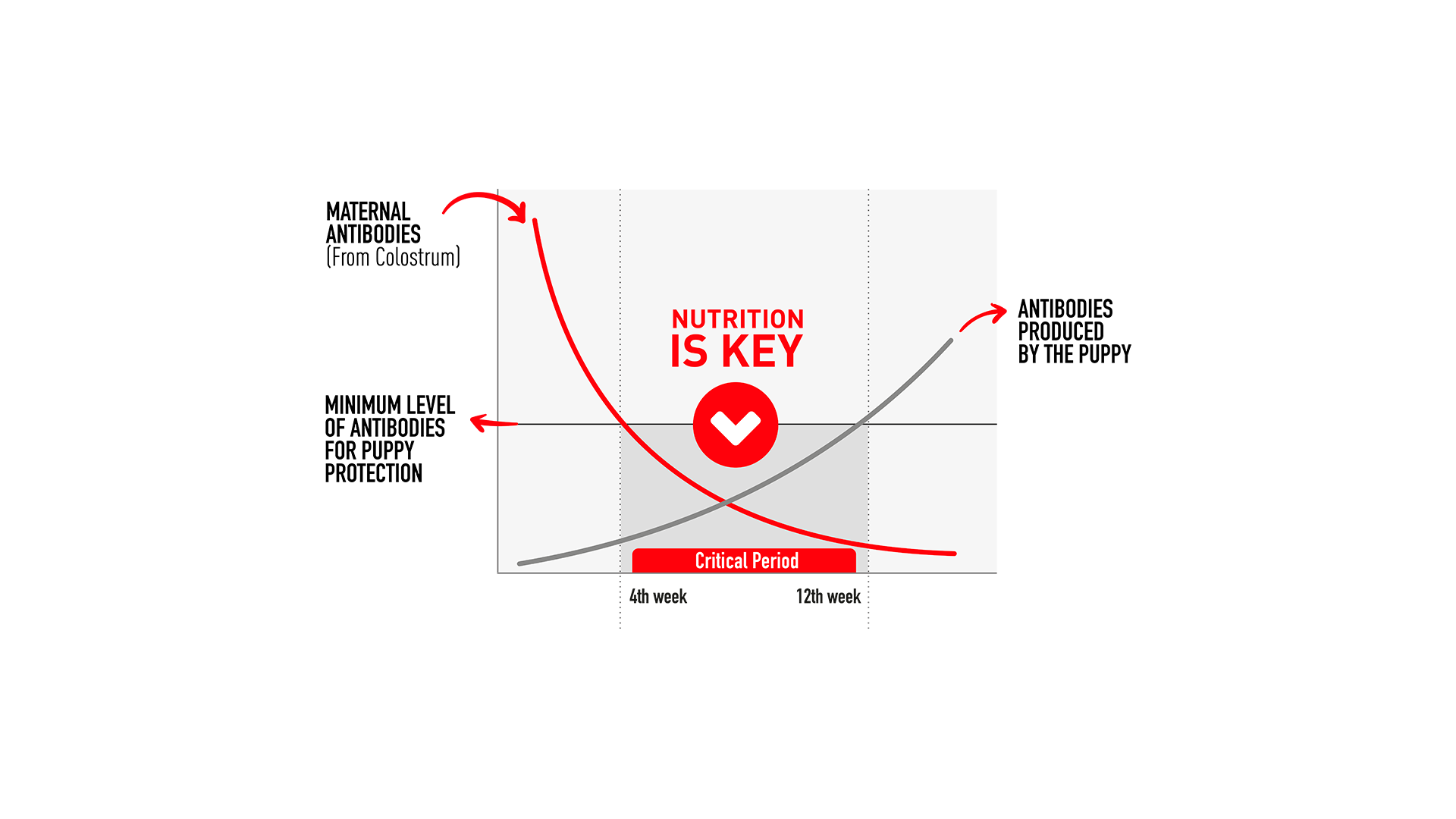How is your puppy's immunity different from that of an adult dog?
We love our dogs; we wish to protect them from harm and one of the best allies for this mission is
already in their body: their immune system.
Article

Immunity is a defence system, always ready to fight against pathogens. Acting like a shield, this network of organs, white blood cells, proteins (antibodies) and chemicals is constantly assessing threats to protect your dog’s health against bacteria, viruses, parasites, and other potentially harmful agents. But this defensive barrier is more developed in adult dogs than in puppies.
Born with a very immature immune system, puppies need the assistance of colostrum, the first milk from their mother, to survive and strengthen their natural defences. This unique milk is produced after the puppy’s birth and contains antibodies, helping support the immune system as they slowly start interacting with their surroundings. This is the reason it is critical for a puppy to receive this first milk and begin suckling immediately after birth. In situations where puppies can’t nurse from their mother, a milk replacer formulated to be as close as possible to the dam’s milk should be used.
Why is it so important to assist a puppy’s immune system development?
Because the protection puppies receive from their dam doesn’t last forever. This protection gradually declines until 12 weeks of age, while exploration and discovery are getting more and more frequent, and your puppy is exposed to a greater range of experiences and different environments.
As the maternal immunity declines and the puppy’s own immune system is not yet fully developed, there is a critical period of vulnerability that occurs called the immunity gap, which usually occurs between 4 and 12 weeks of age.
During this period of time, the puppy’s immature immune system can use support which is where nutrition can play a role.

How can nutrition help?
The right diet, carefully crafted with key nutrients such as vitamins, antioxidants and prebiotics
(a type of fibre that “feeds” the beneficial bacteria in the digestive tract) can help reinforce their natural defences.
Related Articles
Like & share this page